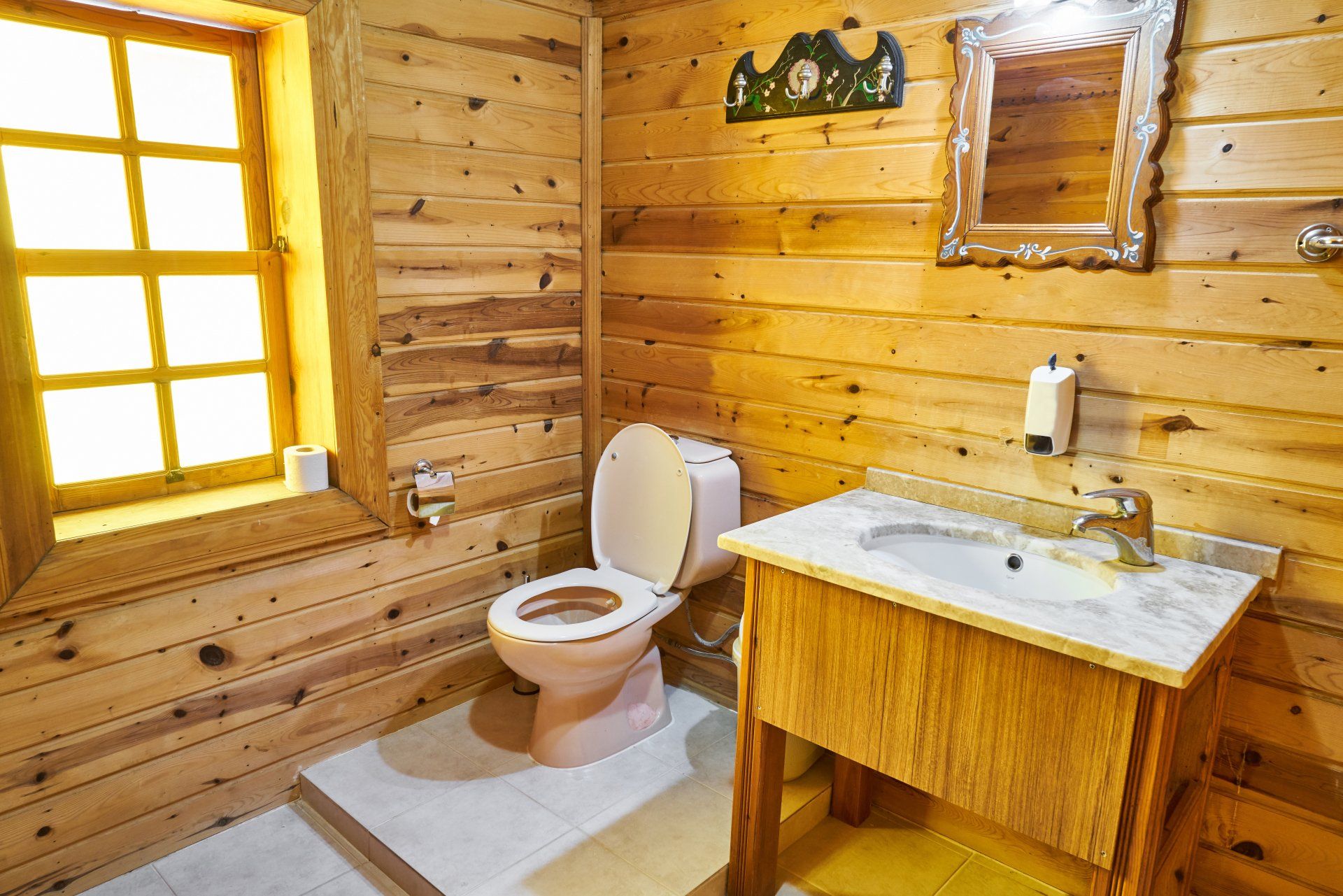Free Estimates to Property Owners
Herring has heard it all over our 50 years in business. Don't be afraid to ask that unheard of question. Chances are, we have heard it before.
-
What are your business hours?
SUNDAY: CLOSED
Monday - Friday: 8am to 7pm ET
Saturday: 9am to 3pm ET
EMERGENCY SERVICE AVAILABLE
-
What if I can't be home when Herring pumps?
That's no problem at all. We will take care of everything and leave an invoice for you. You can call us to pay by credit card when our field operator is at your property. We just need to be able to reach you via phone.
Call Herring at 845-226-5405 to make arrangements for septic pumping and payment.
-
I don't know where my tank is located. How do you find it for the septic cleaning?
If you have a diagram, we can use that. But we will search your property free of charge for up to 15 minutes to locate the tank. Normally we can find it easily, as we are very experienced at doing so. If we cannot find it, however, we can look electronically by sending a sensor through your system via your toilet. There is a charge for this service.
-
What happens when a septic system fails? How can I tell?
One way is if things stop going down the drains. Second is that you have large puddles of something other than water in your yard. More subtle hints are gurgling and odors inside or outside your house. Another major way is if you have a collapse or sinkhole in your yard.
-
How can I prevent a septic failure?
You don’t want to wait for septic failure. We recommend a regular maintenance schedule with your septic company. Like changing the oil in your car, it needs to be done periodically. Board of Health recommends pumping a residential tank every 2 years for an average family of 4.
-
How often should I pump my septic tank?
The formula is as follows:
100 multiplied by number of people that live in the house divided by the size of septic tank
We often hear ourselves giving the advice, "If it ain't broke don't fix it." But this doesn't apply to septic maintenance. Just because everything is flowing, and you haven't had a back-up doesn't mean you can skip your regular pump out.
-
Should I be careful of what I pour down the drain?
The only thing that should go in your septic tank besides septic-safe toilet paper is what comes out of the human body. Using this logic, don’t put anything down your drain because it all goes through your septic tank. Absolute No-Nos are kitty litter and wet wipes. Just because it says flushable doesn’t mean it’s septic safe. It only means it will make it through the septic line.
-
What shouldn’t I flush down the toilet?
The only thing that should go in your septic tank besides septic-safe toilet paper is what comes out of the human body. NEVER flush kitty litter, kitchen grease, wet wipes, paper towels, feminine hygiene products. Even tampons can be a problem. Do not flush GI Joe or Matchbox cars either.
-
Will additives help my system?
Eco-friendly digestant for waste and grease helps to provide natural aid to normal operation of waste disposal systems, increasing the capacity for waste elimination. In addition...
It helps to eliminate odors which attract disease bearing insects.
It helps reduce gum and pectin which cause glazing of drain fields and drainage pits.
It helps eliminate soggy soil and surface puddles due to clogging of drain field.
It helps to keep your entire plumbing system working and healthy.
It helps to break down grease.
It improves percolation.
-
Can I drive on my leach fields?
It is not advised. You could crush the pipes or you could cause the pipes to become disconnected from the tank. These kinds of repairs are quite costly.
-
Can I put my above ground pool over my leach fields?
Septic systems work on leaching and it’s the sun that helps with the leaching and drying out of the septic fields. If you cover that up you are likely to stop the natural process in its tracks. Also the weight of the pool could damage the fields.
-
What, if anything, can I build on top of my septic tank or leach field? (carport, tennis court, hot tub, deck, patio, garage, etc.)
The main issue is access. You can build anything over your septic tank as long as you don’t cover the access of to the tank. We recommend ALL 3 access points are accessible in case you need camera searching or repair work performed. This will keep your repair costs down. Avoid installing anything, including pilings over pipes during construction as their weight could break the pipes.
-
I’m going to start raising my own chickens. Can I put my chicken coop over my septic fields or tank?
YES, as long as you don’t cover the access of to the tank. It shouldn’t interfere because a chicken coop isn’t that large and is definitely not as large as your leach fields. Make sure you leave access to the lids so when servicing your tanks, your septic man won’t let your chickens out.
-
Can you tell if the tank needs pumping without digging it up?
It all depends on how long it’s been since you last pumped your tank. It should be cleaned regularly, not when you are having a symptom. Although, some septic tanks and bacteria in them break down the solids differently than others. So some people can go longer. Best way to know is to ask at your regular service if the septic man thinks you could have waited longer. Determine your next service based on his answer.
-
Can I inspect the tank myself?
It would be hard to know what to look for without some experience. If you think you could figure out the normal operational level and want to stick your head down into a septic tank to inspect the baffles, you may be able to do it yourself. However, if you are not licensed by the state to haul waste, you are prohibited by law to haul waste and therefore should never pump it yourself. Generally, based on the expertise needed and the high cost of repairs, we recommend leaving the inspections to the professionals.
-
Do I need to do a septic pumping (aka septic cleaning) regularly or just when there is a problem?
Just like your car's oil, you don't wait for a problem with your engine before changing it. Your septic system is the same. The BoH (Board of Health) says 2-3 years is the increment you should use for septic cleaning. Once we have done a septic pumping for you, we will add you to our no-pressure reminder system and send you a reminder in 2 years so you don't have to remember yourself.
-
How much will it cost to have my tank pumped?
A lot less than repairing or replacing it. Prices vary based on gas prices and current price of dumping. Call the office to get the current price - we’ll quote it right over the phone. And remember to ask for whatever discounts you qualify for.

"We've used Herring in the past and they were great. Last year we tried someone new and it was a disaster. We will have Herring again in the future.."
Linda G., Dutchess County, NY
Button
"Excellent customer service and honest advice on what needs to be done"
Helen C., Fishkill, NY
Button
"Great service, they show up when scheduled, and are available when needed for serious challenges."
Russell P., Highland, NY
Button
Have a question we haven't covered here?
Is your toilet gurgling or backing up?
This could be the sign of a potential issue that if left unchecked could turn to a costly system replacement. Herring can come out and service it for you now, before the problem gets worse.
Professional Septic Inspections
A simple septic system inspection can save homeowners a great deal of time and money. This service is most commonly used by home buyers before purchasing a new home. A properly conducted septic inspection ensures that the system is working properly at the time of inspection and reduces the chances of a dangerous and/or costly surprise to the future homeowner.
A visual septic inspection may be able to determine the status of a septic system beyond what the average homeowner is able to conclude. We ask that there be running water in the house so we can observe the flow through the tank and distribution system. The inspection consists of a visual scan of the inside of the tank to make sure that the water level is proper and that liquids are flowing into the tank and out to the leach fields without restriction. We check to make sure that the baffles are present and intact. The scum and sludge levels are observed to ensure the tank has been properly maintained in the past. We also walk around the property to check for any soft or wet spots that would suggest the leach fields are not working properly.
Other inspection services include a visual inspection of the pipes, distribution box, and leach fields using a camera to further evaluate the status of the distribution system. Visit our Septic Inspections page to find out more about the Septic Inspection options available for you.
Quick & Reliable
Email us Anytime
Call
Serving Hudson Valley NY
146 Old Route 9 Fishkill NY 12524
Navigation
Services
Office Hours
- Mon - Fri
- -
- Saturday
- -
- Sunday
- Closed
*24/7 Emergency Line is available for emergencies and a qualified staff member is on call during non-business hours. We have a fully staffed office to help during regular business hours.
All Rights Reserved | Herring Sanitation and Septic Services, Inc.
All prints, works, brands and trademarks are under the copyrights of their owners.
Please contact us for permission to use any of the content herein.


